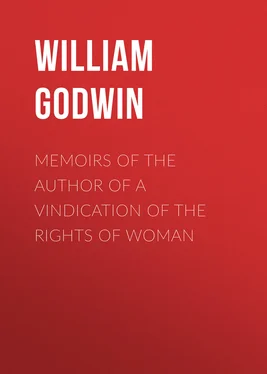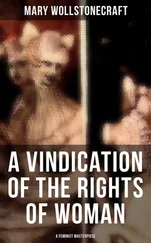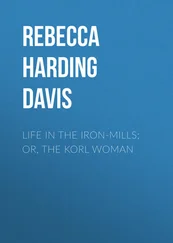William Godwin - Memoirs of the Author of a Vindication of the Rights of Woman
Здесь есть возможность читать онлайн «William Godwin - Memoirs of the Author of a Vindication of the Rights of Woman» — ознакомительный отрывок электронной книги совершенно бесплатно, а после прочтения отрывка купить полную версию. В некоторых случаях можно слушать аудио, скачать через торрент в формате fb2 и присутствует краткое содержание. Жанр: Биографии и Мемуары, literature_18, foreign_antique, на английском языке. Описание произведения, (предисловие) а так же отзывы посетителей доступны на портале библиотеки ЛибКат.
- Название:Memoirs of the Author of a Vindication of the Rights of Woman
- Автор:
- Жанр:
- Год:неизвестен
- ISBN:нет данных
- Рейтинг книги:3 / 5. Голосов: 1
-
Избранное:Добавить в избранное
- Отзывы:
-
Ваша оценка:
- 60
- 1
- 2
- 3
- 4
- 5
Memoirs of the Author of a Vindication of the Rights of Woman: краткое содержание, описание и аннотация
Предлагаем к чтению аннотацию, описание, краткое содержание или предисловие (зависит от того, что написал сам автор книги «Memoirs of the Author of a Vindication of the Rights of Woman»). Если вы не нашли необходимую информацию о книге — напишите в комментариях, мы постараемся отыскать её.
Memoirs of the Author of a Vindication of the Rights of Woman — читать онлайн ознакомительный отрывок
Ниже представлен текст книги, разбитый по страницам. Система сохранения места последней прочитанной страницы, позволяет с удобством читать онлайн бесплатно книгу «Memoirs of the Author of a Vindication of the Rights of Woman», без необходимости каждый раз заново искать на чём Вы остановились. Поставьте закладку, и сможете в любой момент перейти на страницу, на которой закончили чтение.
Интервал:
Закладка:
These however were only temporary delays. Her propensities continued the same, and the motives by which she was instigated were unabated. In the year 1778, she being nineteen years of age, a proposal was made to her of living as a companion with a Mrs. Dawson of Bath, a widow lady, with one son already adult. Upon enquiry she found that Mrs. Dawson was a woman of great peculiarity of temper, that she had had a variety of companions in succession, and that no one had found it practicable to continue with her. Mary was not discouraged by this information, and accepted the situation, with a resolution that she would effect in this respect, what none of her predecessors had been able to do. In the sequel she had reason to consider the account she had received as sufficiently accurate, but she did not relax in her endeavours. By method, constancy and firmness, she found the means of making her situation tolerable; and Mrs. Dawson would occasionally confess, that Mary was the only person that had lived with her in that situation, in her treatment of whom she had felt herself under any restraint.
With Mrs. Dawson she continued to reside for two years, and only left her, summoned by the melancholy circumstance of her mother's rapidly declining health. True to the calls of humanity, Mary felt in this intelligence an irresistible motive, and eagerly returned to the paternal roof, which she had before resolutely quitted. The residence of her father at this time, was at Enfield near London. He had, I believe, given up agriculture from the time of his quitting Wales, it appearing that he now made it less a source of profit than loss, and being thought advisable that he should rather live upon the interest of his property already in possession.
The illness of Mrs. Wollstonecraft was lingering, but hopeless. Mary was assiduous in her attendance upon her mother. At first, every attention was received with acknowledgments and gratitude; but, as the attentions grew habitual, and the health of the mother more and more wretched, they were rather exacted, than received. Nothing would be taken by the unfortunate patient, but from the hands of Mary; rest was denied night or day, and by the time nature was exhausted in the parent, the daughter was qualified to assume her place, and become in turn herself a patient. The last words her mother ever uttered were, "A little patience, and all will be over!" and these words are repeatedly referred to by Mary in the course of her writings.
Upon the death of Mrs. Wollstonecraft, Mary bid a final adieu to the roof of her father. According to my memorandums, I find her next the inmate of Fanny at Walham Green, near the village of Fulham. Upon what plan they now lived together I am unable to ascertain; certainly not that of Mary's becoming in any degree an additional burthen upon the industry of her friend. Thus situated, their intimacy ripened; they approached more nearly to a footing of equality; and their attachment became more rooted and active.
Mary was ever ready at the call of distress, and, in particular, during her whole life was eager and active to promote the welfare of every member of her family. In 1780 she attended the death-bed of her mother; in 1782 she was summoned by a not less melancholy occasion, to attend her sister Eliza, married to a Mr. Bishop, who, subsequently to a dangerous lying-in, remained for some months in a very afflicting situation. Mary continued with her sister without intermission, to her perfect recovery.
CHAP. III.
1783-1785
Mary was now arrived at the twenty-fourth year of her age. Her project, five years before, had been personal independence; it was now usefulness. In the solitude of attendance on her sister's illness, and during the subsequent convalescence, she had had leisure to ruminate upon purposes of this sort. Her expanded mind led her to seek something more arduous than the mere removal of personal vexations; and the sensibility of her heart would not suffer her to rest in solitary gratifications. The derangement of her father's affairs daily became more and more glaring; and a small independent provision made for herself and her sisters, appears to have been sacrificed in the wreck. For ten years, from 1782 to 1792, she may be said to have been, in a great degree, the victim of a desire to promote the benefit of others. She did not foresee the severe disappointment with which an exclusive purpose of this sort is pregnant; she was inexperienced enough to lay a stress upon the consequent gratitude of those she benefited; and she did not sufficiently consider that, in proportion as we involve ourselves in the interests and society of others, we acquire a more exquisite sense of their defects, and are tormented with their untractableness and folly.
The project upon which she now determined, was no other than that of a day-school, to be superintended by Fanny Blood, herself, and her two sisters.
They accordingly opened one in the year 1783, at the village of Islington; but in the course of a few months removed it to Newington Green. Here Mary formed some acquaintances who influenced the future events of her life. The first of these in her own estimation, was Dr. Richard Price, well known for his political and mathematical calculations, and universally esteemed by those who knew him, for the simplicity of his manners, and the ardour of his benevolence. The regard conceived by these two persons for each other, was mutual, and partook of a spirit of the purest attachment. Mary had been bred in the principles of the church of England, but her esteem for this venerable preacher led her occasionally to attend upon his public instructions. Her religion was, in reality, little allied to any system of forms; and, as she has often told me, was founded rather in taste, than in the niceties of polemical discussion. Her mind constitutionally attached itself to the sublime and the amiable. She found an inexpressible delight in the beauties of nature, and in the splendid reveries of the imagination. But nature itself, she thought, would be no better than a vast blank, if the mind of the observer did not supply it with an animating soul. When she walked amidst the wonders of nature, she was accustomed to converse with her God. To her mind he was pictured as not less amiable, generous and kind, than great, wise and exalted. In fact, she had received few lessons of religion in her youth, and her religion was almost entirely of her own creation. But she was not on that account the less attached to it, or the less scrupulous in discharging what she considered as its duties. She could not recollect the time when she had believed the doctrine of future punishments. The tenets of her system were the growth of her own moral taste, and her religion therefore had always been a gratification, never a terror, to her. She expected a future state; but she would not allow her ideas of that future state to be modified by the notions of judgment and retribution. From this sketch, it is sufficiently evident, that the pleasure she took in an occasional attendance upon the sermons of Dr. Price, was not accompanied with a superstitious adherence to his doctrines. The fact is, that, as far down as the year 1787, she regularly frequented public worship, for the most part according to the forms of the church of England. After that period her attendance became less constant, and in no long time was wholly discontinued. I believe it may be admitted as a maxim, that no person of a well furnished mind, that has shaken off the implicit subsection of youth, and is not the zealous partizan of a sect, can bring himself to conform to the public and regular routine of sermons and prayers.
Another of the friends she acquired at this period, was Mrs. Burgh, widow of the author of the Political Disquisitions, a woman universally well spoken of for the warmth and purity of her benevolence. Mary, whenever she had occasion to allude to her, to the last period of her life, paid the tribute due to her virtues. The only remaining friend necessary to be enumerated in this place, is the rev. John Hewlet, now master of a boarding-school at Shacklewel near Hackney, whom I shall have occasion to mention hereafter.
Читать дальшеИнтервал:
Закладка:
Похожие книги на «Memoirs of the Author of a Vindication of the Rights of Woman»
Представляем Вашему вниманию похожие книги на «Memoirs of the Author of a Vindication of the Rights of Woman» списком для выбора. Мы отобрали схожую по названию и смыслу литературу в надежде предоставить читателям больше вариантов отыскать новые, интересные, ещё непрочитанные произведения.
Обсуждение, отзывы о книге «Memoirs of the Author of a Vindication of the Rights of Woman» и просто собственные мнения читателей. Оставьте ваши комментарии, напишите, что Вы думаете о произведении, его смысле или главных героях. Укажите что конкретно понравилось, а что нет, и почему Вы так считаете.












